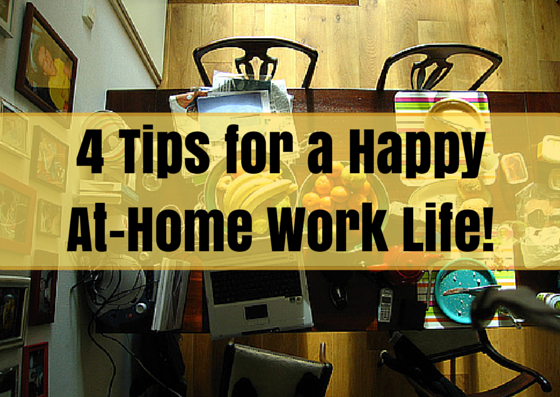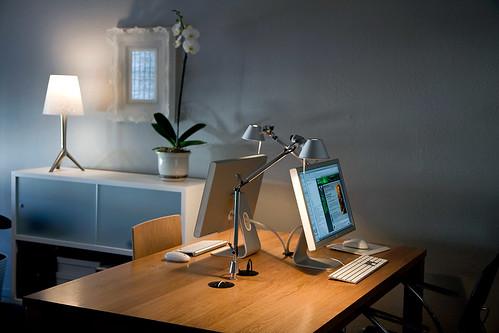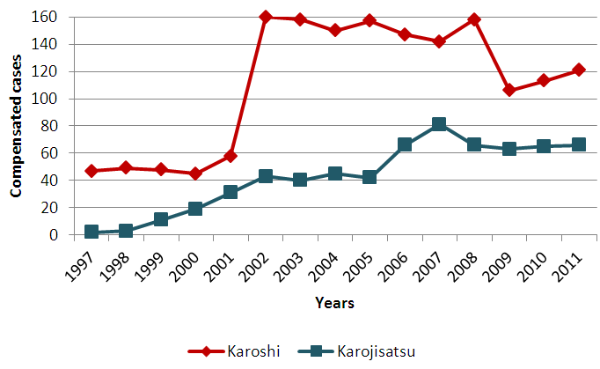When I found out that my job at Spokal would require me to work from home, I was a mixed bag of emotions.
At first, you’re thrilled! Working from home has all those typical perks you might think they do, such as working in your pyjamas (hey, don’t judge – you would too!) to saving money on fuel, but people kept asking me how I would keep myself motivated? How would I keep myself on a schedule? How would I stop myself from taking naps?
Well, for one: I don’t nap. And as for the other points… I wasn’t sure.
And so I started to get nervous. Was I going to become too distracted? Was I going to let my work suffer? Was I going to even get it done?
So in June I started to work for Spokal from home. I also have a co-working space in town, so if I start to get a little stir crazy, I can always go there.
And for the first few weeks, everything went swimmingly!
And after a few months, I was still working my aaaa… uhm… fingers off.
And eventually I noticed a starkly different pattern then the one I had expected: It became a regular occurrence that I worked too much, stayed on the laptop too late, would peep at my work on weekends, and I would only notice myself doing it by the very audible moans from my housemates and/or partner sighing when I said for the fifth time “just a minute!”
So I started looking up ways to address these issues. And this is when I found out that this isn’t an odd individual quirk of mine. This is actually normal.
A recent study from Brown University which randomly selected 255 employees from a call center who volunteered to work at home for 9 months, actually found that those employees productivity increased by 12%.
Yes, you read that correct: Working from home makes you more productive.
Not only that but the study also found that there was an 8.5% increase in the number of minutes worked per shift and a 3.5% increase in the performance they squeezed out per the minutes they worked.
And what gets even more interesting that the at-home workers actually rated their job satisfaction as remarkably higher than their in-office co-workers: Jot attrition rates dropped by a massive 50%!
But why the big difference?
Firstly, there’s less distractions.
There were no last minute meetings, no conversations about last night’s Walking Dead, no coffee runs. Instead, you flip the kettle on, you situate yourself in your work space and you… well… work.
So this post isn’t going to be about how to be productive when working from home. Because you will be, trust me.
Instead, I want to talk about working at home best practices.
1. Get a Work Space
Get a desk.
I know it seems obvious, but you’d be surprised by how many people think they can work at home from the sofa.
I know it’s tempting, but don’t do it. Among other things, working form the sofa is horrible for your posture, will make you feel lethargic, and will make you less productive since you will likely be less organized.
Get a desk, even a small one from Ikea, and don’t forget a comfortable chair.
Get a desk lamp, folders, planners etc. Put things around your desk. Make it your own work space, like one you’d have in an office. The point is to make it feel like a place that work should and will happen in.
Creating an atmosphere like this is conducive to a healthy working mind. It’ll allow you to switch “on” when you’re at your desk, and switch “off” when you leave.
2. Get Out Into The World
If you live within meeting distance of any of your colleagues, schedule a monthly face-to-face meeting with them.
If you don’t live relatively close to anyone on your team (like me!), then there are alternatives.
- Research any co-working spaces in your city. They’re all the rage nowadays, so there’s bound to be one in your city.For the U.S. and Canada you can check out The League of Extraordinary Co-working Spaces for some great information on co-working spaces in your city. For Europe, check out Coworking Europe for pretty extensive lists!
- Go to a coffee shop for a few hours once a week to work. Don’t forget to do a little research online and make sure they have wifi first!
- Run small errands during the week on your break! Because I work from home, I leave small errands until the weekday that I can run as a way to get out of the house and give myself a break. For example, I don’t buy any fruit and veg on the weekend, instead opting to buy them fresh on the day that I’ll be using them! I get fresh fruit and veg, and the added bonus of 10 minutes of fresh air and social interaction!
- You might live too far away to go to coffee shops, or run quick errands, and if this is the case, try to organize at least one social activity in the evenings during the week. Have a friend over and cook for them, go to a movie, go to the gym with your SO. Whatever it may be, just try and break the isolation.
3. Understand Why It’s So Important to “Shut Off”
It’s surprisingly difficult to switch off from work when it’s lying right in front of you. You have deadlines, projects that need to be finished, that error that keeps popping up etc. and you know that if you just sit down and work at it for a few more hours, it’ll be off of your mind and you can relax.
Slowly, you’ll start to ramble off sentences such as: “Just another few minutes…”, “I’ll just finish this and I’ll stop working a little earlier tomorrow”, and “I’m just getting this done so I don’t have to worry about it on the weekend”.
Here’s the brutal truth: You will be longer than a few minutes. You will work the same hours tomorrow anyways. You will still check on it over the weekend.
Stop kidding yourself.
I love my work, but I also love my life, and you should too.
We need to keep the two things in balance. Just like we try not to over-eat, over-exercise, over-party etc.
Burnout will be the fastest way you’re likely to lose your job/business/friends/family. And, horrifyingly, your life.
In fact, in Japan there’s a word for dying from over-working: Karōshi
Beneath you’ll see the table depicting the increase in work-related deaths. Karojisatsu is suicides due to work-related stress.
For you own health (and the standard of your work) it’s important to create work hours and stick to them.
If you live with somebody, try to emulate their work hours. Start when they leave for work, and end when they get home.
Of course, everyone has to do overtime or a few extra hours here and there, which is fine. When you work from home, you get the added flexibility to be able to modify and change your hours depending on your needs.
If you feel like you need a little more time during a particularly heavy week, try and start a half an hour earlier and end a half an hour later. I like to rationalize that this is the amount of time that I would spend on a commute anyways, so it isn’t eating into my regular routine much anyways!
This isn’t something you should do a lot, just if you feel that deadlines are looming and it’s either this, or a few 12 hour days!
4. Create a Rhythm to your Day
Nearly every morning and evening has the same routine for me.
Morning: Put coffee on. Start computer. Check emails. Answer emails. Reply to comments. Check social media accounts. Schedule & curate social media sharing for the day. Start creating content (or whatever else is on that day).
Evening: One final email check. Answer any last minute emails. Check planner to ensure that all items for the day have been completed, make notes and move items around if needs be. Turn computer off. Clean & Tidy desk.
Because I have such a rigid process, I always know when I’m ahead of schedule or behind and I can plan my following day (or the coming evening) accordingly. If things are going well, I’ll get to work on tomorrow’s workload. If things are running behind, I’ll get up earlier the following morning to catch up.
The routine allows me to be able to better monitor how much (or how little) I’ve actually done in a day. Without it, I think I’d just constantly work and feel like I’m never really getting anywhere.
Do you guys have any tips for working from home? Please share!
Need help with your marketing? That's what we're here for.
Just leave us your email and we can send you the A-Z dictionary of online marketing terms. We'll also send you a bunch of templates, including a blogging template, and guides to go along with them too! We know. It's awesome.





